Greek citrus is in trouble on the European market. Competition from Spain is fierce, so exporters are focusing on the east of the continent. Egypt and Turkey are also working on becoming citrus exporters, although the Greek exporters don’t consider them a threat yet. They’re convinced the Greek harvest has better quality and flavour.
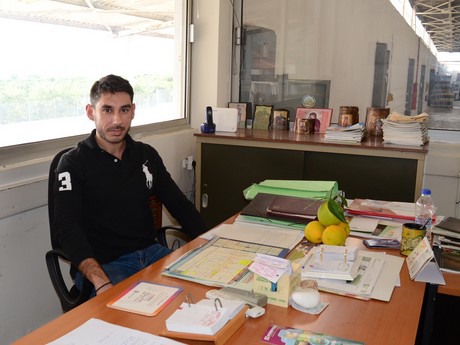
Panagiotis Mastorakos.
The sun is at its highest, but the afternoon will last several more hours. Yet the site of Cooperative Pegasus in Nea Tirynthia Nafplion is quiet. The cause isn’t that the Greeks are enjoying the warm Indian summer afternoon. “We start packing in ten days,” says Panagiotis Mastorakos of the quiet of the site. “The harvest starts a bit later this year, because the fruit isn’t ready yet.” Everything is ready to start the new citrus season. The fork-lift trucks are in line, and the four packing lines are ready. Fifty employees will pack, palletise and place the fruit rolling over the belts in storage.
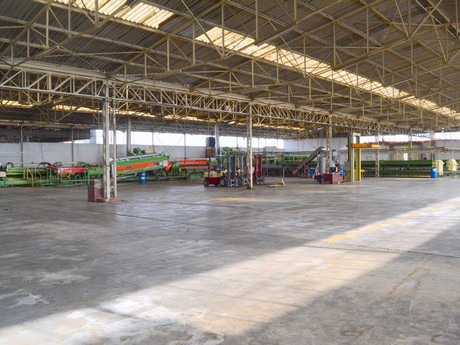
Greek competition
“We expect a good season with a volume of 15,000 tonnes. Last year was good, but the harvest is larger this year.” An increase of ten per cent has been estimated for the entire country. “That’s thanks to the good conditions this year. We had no problems during the summer months.”
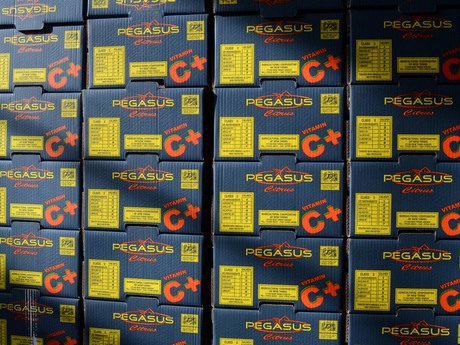
The cooperative, consisting of nearly 250 members, is completely focused on the export of oranges (Navelina, Navel, Navellate, Lanelate) and tangerines (Nova, clementines). Hungary, Bulgaria and Romania are the largest sales markets. It’s mostly Greek companies being competitors of each other there. “We sell some product on the domestic market, but that volume is very small.”
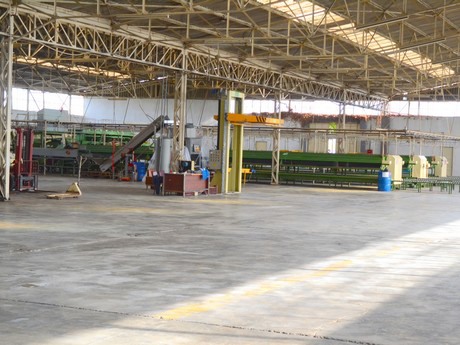
The area of the growers is limited. A grower with eight hectares is the biggest member of the cooperative. “I also have an orchard with oranges and tangerines,” Panagiotis explains. He’s expecting to harvest 120 tonnes. “It’s usual for citrus growers to have a small area, and that they have a second job besides growing fruit.”
More help from the government
Greek growers can’t compete with the Spanish, who are entering the European market with new varieties, more experience and a larger volume. “It’s not easy to improve our varieties. Licences are expensive.” The Greek fruit doesn’t have to worry about competition from Turkey and Greece. “The flavour and quality of our fruit is much better,” Panagiotis argues.
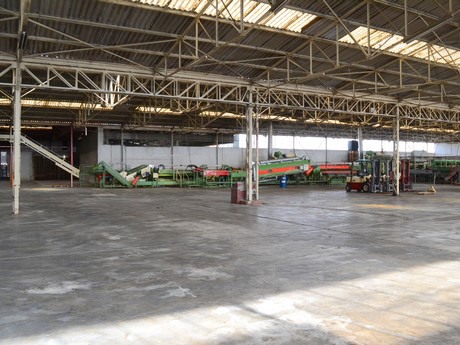
The region between Arta and Nafplio in Peloponnesos is the heart of the Greek citrus production. The citrus can’t be compared to the Spanish product. “We’re working hard on improving our standards,” Panagiotis says. “We can export to Eastern Europe, and we’re steadily growing.” The number of members is gradually increasing. The cooperative wants to help these growers to market the citrus. “We don’t get any help from the government, only the Chamber of Commerce is helpful.”
For more information:
Cooperative Pegasus
Panagiotis Mastorakos
Nea Tirynthia, Nafplion 21100 / Argolida
T: +30 27 52 03 61 16
W: www.phgasus.gr
E: phgasus@otonet.gr
